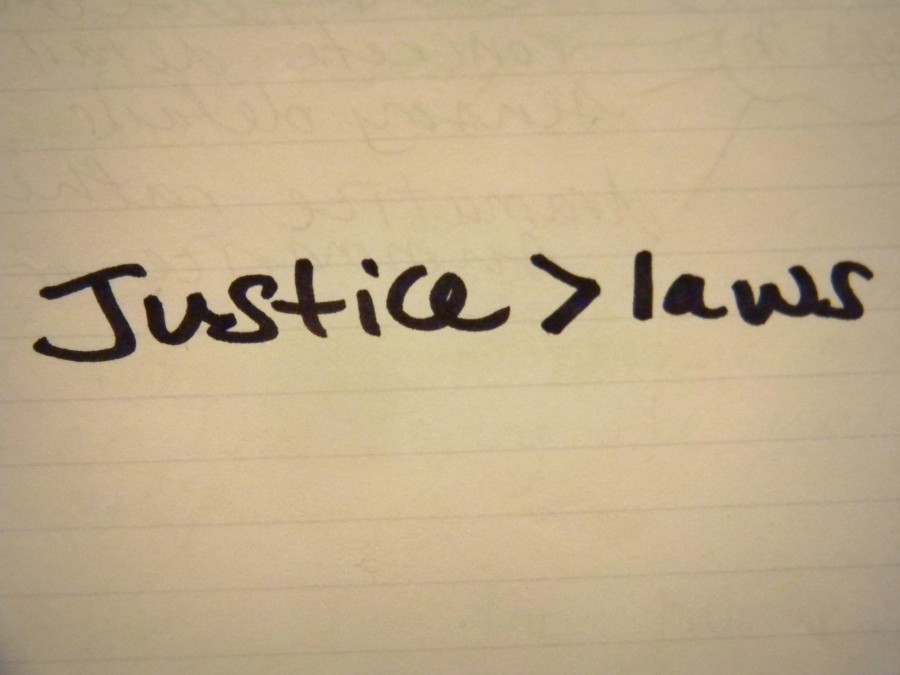By Caleb Hogland
Staff Writer
Martin Luther King Jr. Does anyone really remember who he is or what he did other than have a dream and tell the world? It must have been a moving speech.
MLK, Jr. was a black Civil Rights activist who was unjustly beaten, jailed and eventually assassinated for his convictions. He was an inspirational, charismatic spokesman who won the Nobel Peace Prize in 1964 by rallying a nation to stop racism.
What more is there to know? How about how he became a great leader, how about what he rooted his reasons and convictions in, how about how he was able to change the world?
King is one of the greatest Civil Rights activists because of his character, convictions and education, all of which encouraged him to fight for social justice.
MLK, Jr. was a pastor like his father and his grandfather. Also, like his father and grandfather, he graduated with a B.A. degree from Morehouse College in Atlanta, Ga.
He studied theology at Crozer Theological seminary in Pennsylvania, graduating with a B.D in 1951 as the class president and went on to receive his doctorate from Boston University in 1955.
In his most famous speech, “I Have a Dream,” delivered at the feet of the Lincoln Memorial 100 years after the Emancipation Proclamation, he called for the end of racism and demanded justice as it was promised to them.
In his “Dream” speech, he reminded the people that all men are created equal; and there would not be satisfaction in treatment of anything less.
He spoke of justice as if it was something to be grasped – like a virtue independent of those withholding it. He spoke of men being created equal as if there were some sort of transcendent laws that gave all men intrinsic value.
Could these same ideas be grounded in anything today? When beliefs run rampant and culture is so quick to say that no one’s judgments are valid or invalid, how do we advocate for justice?
Where did or does justice come from? Can justice be defined by those who wield the pens of legislation?
Martin Luther King, Jr. believed in a Creator of the universe, a Creator of transcendent laws and a Creator of justice. He was moving because he appealed to those that held the same beliefs. He appealed to reason.
Another of his most moving works is the collection of letters from the Birmingham jail – less famous yet more eloquent, persuasive and filled with reason.
In these letters he explains the importance of his non-violent direct action methods. With these methods he sought to create tension – a tension that we must never be afraid of. Tension forces those who refuse to negotiate to act.
His methods, as he says in his letter from Birmingham jail, were inspired from specific Biblical characters, Christian persecutions by the Romans and Socrates in Greece.
There are those who are still ignorant enough to blame religions for racism and slavery. It is time to face the reality that one of the greatest Civil Rights activists was highly educated through a Christian and theological education.
MLK, Jr. recalls that “everything Hitler did in Germany was ‘legal,’” and through Hitler’s example, we know that it is not laws that create justice.
No law can make any immoral action good. Like a man losing his sight who doesn’t know it, these wrongs will only become acceptable and no longer realized.We still face issues of racism. We still face issues that are deemed legal or socially acceptable.
As MLK, Jr. sat in jail, he described his frustration with the moderates. Moderates are those who know what to do yet will not act. Moderates are those who know when a wrong is occurring and when injustice is happening, yet do not have the character to stand up for what is right.
Martin Luther King, Jr. knew that life has meaning. He knew that we are not just animals that evolved by accident. He knew that justice was not a product of culture but a virtue to be grasped by all people.
This is what is important to know about Martin Luther King, Jr. This is why he and his convictions remain relevant.


